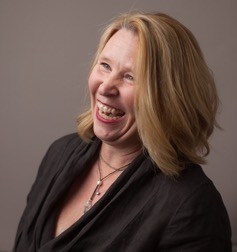Interview
What do you write?
I have an academic publishing background, but recently decided to take a creative turn, because academic lingo felt too conforming, distant, and pretentious. Since I had dabbled in personal essays for a while (a column about being an ex-pat, a blog, etc) it was the “natural” place to start this creative journey. I have a couple of memoir-type projects in the works, but a novel has also been brewing in me for several years (read: I’m obsessed). Since I have little experience writing fiction, I have a few short stories in various stages that I keep returning to, when I feel brave, to warm me up for the big dive of tackling the novel.
Is there an author or artist who has most profoundly influenced your work?
My answer to this might seem diffuse, but my literary influences are too heterogeneous both in languages, cultures, generations, and genres that I can’t isolate one, or even a few. I will say that I have felt profoundly influenced by the writing, language, and ideas of Norwegian, French, English, and Israeli authors, and that without these influences I would not be who I am or write (or strive to write) the way I do today. I will admit that I am all over the place, in more ways than one.
Why did you choose Stonecoast?
See last answer! But all kidding aside, it was the fact that Stonecoast encourages what I call trans-genre exploration and interests, that is what really spoke to me. Also, I had heard exceptionally great things about the program, and it didn’t hurt that I had just moved to Maine…
What is your favorite Stonecoast memory?
Haha, even this is kind of fluid: Since I am a first semester student, and have only attended one residency so far, I expect I am just at the beginning of building and collecting favorite Stonecoast memories. But I will say that the feeling I had during the summer residency was that I had landed in a really special tribe of amazing and eclectic minds that I felt privileged to be counted among. And that feeling is a fond memory.
What do you hope to accomplish in the future?
A Norwegian author I admire, Jon Michlet, recently passed away from cancer at 73. On his deathbed, full of morphine, he finished his 48th book, and it was his best one. I hope to continue developing and engaging as a writer until the end; to be disciplined enough to finish the books and stories I have in me, and to make a difference in the writing lives of a few students.
If you could have written one book, story, or poem that already exists, which would you choose?
You’re killing me with the choices…But, I found The Story of a Brief Marriage by Anuk Arudpragasam, to be like a perfect, tiny, gem, on so many levels; I would love to have been able to write something like that.
Featured Work
A Little Man Named Leo
The following is a work of fiction exclusively for Stonecoast Review.
“I can still give pleasure, you know,” the barely 5’ tall Holocaust survivor told Nora, in his thick Polish accent. His eyes beamed at her, his chin held high as if to give the impression of a certain stature, after all. “I know how to make a woman happy, even if I am not as virile as I used to be in my youth.” An 85-year old widower on dialysis, Leo lived in a small efficiency apartment in Federation Square, a housing complex for the elderly Jewish population in their community. Nora paid him a visit now and then, after her teenage son had interviewed him for an essay project, matching survivors with teens. So we will never forget. In Leo’s over-heated living room, faded black and white photos of his family lined the walls, all of who perished in the camps—his mother, father, brothers and sisters. His grandparents were killed too, as were his aunts and uncles. A photo of the Polish woman who saved him hung next to theirs.
Leo was an enchanting man with his gentle manners and positive outlook on life, despite the brutality he had experienced as a child during the war. He was sociable and loved to shower his women friends with chocolates and flowers, even if it wasn’t Valentine’s Day. Now his rosy cheeks were full and warm, and his blue eyes sparkled with anticipation, as he crossed his arms, resting them on his distended belly under high-waisted blue sweatpants layered over a loose-fitting gray sweatshirt. He looked like a little happy gnome, she thought, his bald, round head encircled by a monk-like tonsure of short, gray hair. He always smelled clean, a mixture of baby powder and Old Spice. “I am sure you can,” Nora answered with a smile, not wanting to diminish her octogenarian suitor’s desire although she did not want to encourage his advance either. She thought he was brave, and decided not to change the topic, despite feeling awkward. She was in her mid-40’s and just divorced, and Leo knew to seize an opportunity when it presented itself. An indefatigable optimist, he had escaped the Nazis at age eleven by jumping out of the cattle car transporting his family and their entire village to their deaths, and then he spent two years hiding under the basement stairs of his Polish neighbor’s house—a righteous gentile—who brought him scraps when no-one was looking, under the guise of feeding her rabbits. When the war ended, he had trouble standing up straight after hiding on a bed of moist hay, camouflaged by a stack of empty crates; his body full of flea-bites and his hair scraggly and knotted and infested with lice. He was thirteen in 1945.
Now, Nora and Leo shared a stuffed tuna Subway grinder, seated facing each other at his kitchen table covered with a plastic table cloth; a large blue log-book and a long, pink, plastic pill organizer sat in a corner. He had once shown her how he kept track of everything in that log: the dates, times and consistencies of his bowel movements, as well as his daily weight AM and PM, his diet, and his medications. The payment amounts for his personal assistants were also recorded there—everything had its place, information about the minutia of his daily routines available at his fingertips. Today, Leo told Nora that the indulgence of a little added cheese on his sandwich already felt like he was pushing his luck. He knew that restraint and order helped him survive. “You know, I’m seeing someone,” she said between bites. “I am flattered by your proposition, though.” With a coy smile he answered, “Just remember I’m here if you change your mind.”
The last time she saw him was a beautiful but chilly day in the fall. She picked him up from his home where he was standing outside with his walker. He was always ready early, never wanting to keep anyone waiting. Bundled in a warm and over sized fall jacket, a checkered woolen scarf neatly tied around his neck, his army green cap had ear-flaps covering his round cheeks. Nora helped him into the car, and when she stretched the seat-belt across his front, she noticed he was freshly shaved for the occasion. She folded up his walker and put in in the trunk. Then she brought him to the park nearby, where they sat side by side on wobbly, sun-bleached Adirondack chairs, bundled in the wool blankets she had brought along. Under the blue, cloudless sky, they shared a tuna grinder—without cheese —while ducks and swans and Canada geese glided quietly on the pond, and colorful leaves rustled in the tall, majestic trees. “This is nice,” he said. “In the spring I want to take you and your son out to Chinese!” “That would be great,” she answered. “We will look forward to that.”
But Leo didn’t make it through that winter, because his kidneys stopped functioning, and his heart was too weak to support his slight but declining body with its massive memory. The night before he died, he called Nora from his hospital bed. Holding his little black book with all the phone numbers to his friends, young and old, he made the rounds to say goodbye. “I love you,” he said. “I love you too, Leo,” she answered.

Nina is a native of Oslo, Norway, and blogs under the name of The Viking Jewess. She is the mother of three grown sons who recently flew the nest in CT, which allowed her to migrate north to Maine. She has a background in teaching languages and literature, enjoys live storytelling, and dreams of starting/joining an impov group. When she isn’t writing and busy hosting at her AirBnB, she tries to find her zen doing yoga, and volunteers as an editor for The Telling Room’s online Stories page. Nina’s writing has appeared in The Washington Post, Brevity, Literary Mama, and Lilith, among other places. She is a first semester student at Stonecoast.
